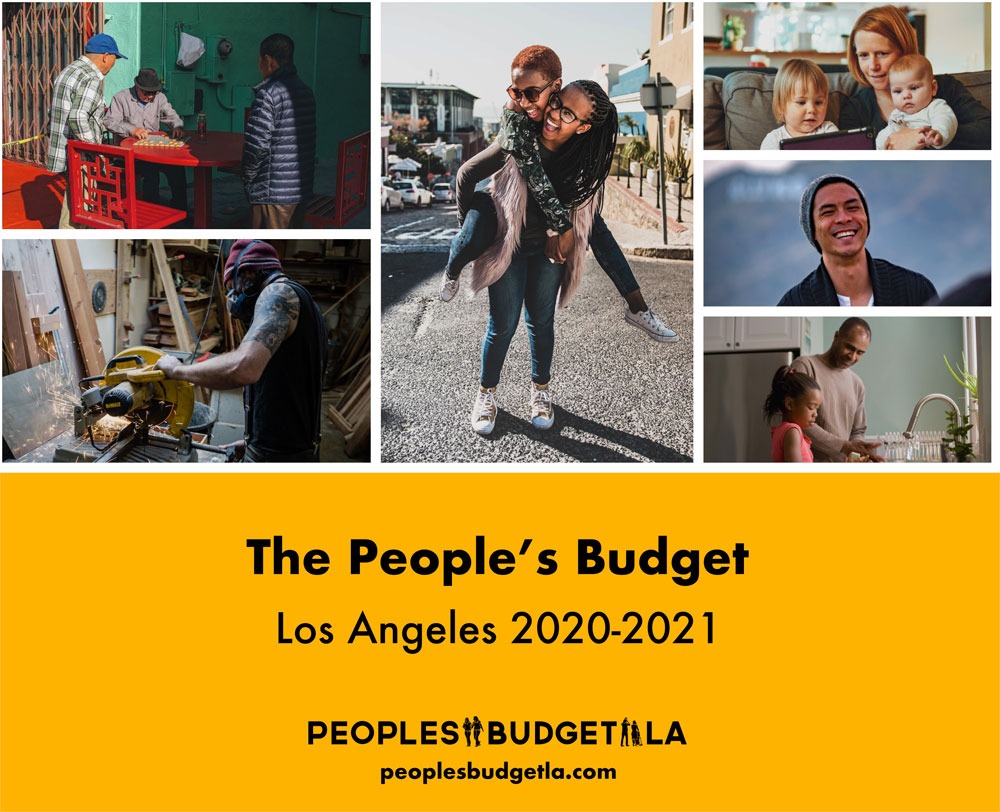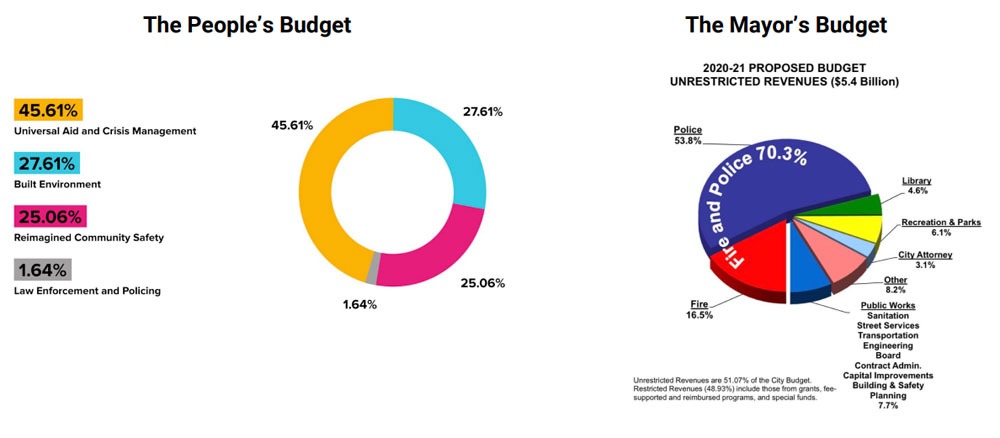
June 15, 2020; Los Angeles Times
The process for budgeting in many cities across the country this year will look very different as demands for not only a defunding of police but a rethinking of priorities take hold. This is already impacting L.A.’s consideration of its $10 billion 2020–2021 municipal budget.
Black Lives Matter–Los Angeles is urging the Los Angeles City Council to consider defunding the police to reconfigure the city’s $10 billion budget to address human and community needs.
On June 15, 2020, Black Lives Matter–Los Angeles and a coalition of activists presented the People’s Budget to five members of the 15-member City Council. David Zahniser and Dakota Smith, writing for the Los Angeles Times, called the nearly two-hour special meeting “extraordinary.” Council President Nury Martinez said, “This is exactly how you reimagine neighborhoods.” The chair of the council’s budget committee, Paul Krekorian, and Councilman Herb Wesson also attended.
Mayor Eric Garcetti’s budget proposal allocates 53.8 percent of a $5.4 billion budget of unrestricted revenues to the LAPD. The People’s Budget would reduce that to 1.64 percent, calling it “Law Enforcement and Policing.” The magnitude of the reduction, which would amount to terminating 9,000 of the 10,000-officer force is the attention-grabbing feature of a proposal that has “hundreds of constituents opposed to defunding the police,” according to Councilman Paul Koretz.
Koretz represents the Westside, a part of the city bordering the Pacific Ocean adjacent to Beverly Hills and Santa Monica, which contains some of its most expensive neighborhoods.
Only focusing on the “defunding” aspect, however, sells this proposal very short. What makes this proposal transformational, and why L.A. nonprofits ought to be paying close attention, is the mindset behind the reallocation of funds. While the activists’ aim is to “reimagine public safety,” what this amounts to is a template for a municipal budget that sets and spends on other priorities that would lead to shared health and wealth.
Sign up for our free newsletters
Subscribe to NPQ's newsletters to have our top stories delivered directly to your inbox.
By signing up, you agree to our privacy policy and terms of use, and to receive messages from NPQ and our partners.
NPQ readers will recognize that this process resembles participatory budgeting, a model that’s spreading across the country. Steve Dubb wrote about a similar effort in Memphis last week.
Behind the concept of defunding the police is recognition that police officers perform functions unrelated to law enforcement or policing that could be achieved more effectively by trained non-police personnel. NPQ’s Emily Weyrauch wrote on June 5th that cities have become “dependent on the police for managing crises due to poverty and unemployment.”

According to PeoplesBudgetLA.com, 24,426 Angelenos took their budget survey, 3,300 participated in a budgeting meeting on Zoom and Facebook Live, and still others gave input via social media and other forums. An activist movement driven by an upswell of public sentiment would more easily involve the public than the municipal authority.
The resulting referendum is to “invest in universal needs (e.g., housing security, public health/health care, mental health and wellness, etc.).” Other top priorities are child and youth development, food security, public transportation, and environmental justice.
Put this in the context of the looming municipal budget crisis and the “austerity situation where poverty has increased and the gaps between the rich and the poor have increased” upon which NPQ’s Ruth McCambridge reported. L.A. is home to many nonprofits working overtime to address human needs in all of the priority areas during the pandemic and the ensuing economic crisis. The People’s Budget, or any other municipal budget based on defunding the police framework and citizen input, has the potential to revitalize civil society’s role in budget development and, by extension, our communities.—Kori Kanayama












